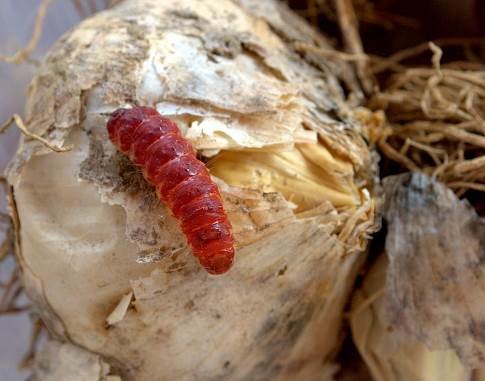FORT LAUDERDALE, Fla. – U.S. Customs and Border Protection (CBP) Office of Field Operations (OFO) agriculture specialists working at Port Everglades in Fort Lauderdale, Florida seized a shipment of garlic after discovery of an actionable pest, Dyspess sp. (Cossidae). The shipment was arriving from Cordoba, Spain on November 2nd. This interception marks a first-in-Florida find for this specific species of the Cossid caterpillar.
During a cargo inspection at Port Everglades, CBP agriculture specialists intercepted a moth with a shipment of fresh garlic from Spain. Upon completing a visual and physical examination of the cargo, the container was sealed pending quarantine action.
The pest was submitted to the U.S. Department of Agriculture (USDA) Systematic Entomology Laboratory and was identified as Dyspess sp. (Cossidae), an actionable pest. On November 5th, confirmation was received from USDA that this interception was a first time finding in the state of Florida.
Most Cossid caterpillars are tree borers that pupate within their tunnels. They often have an unpleasant smell; hence, another colloquial name of “goat moths”. The Dyspess sp. larvae typically feed on Allium species, such as garlic, onion, leek, and chive.
“The CBP agriculture mission is critical to the safety and security of American people, plant, and animal resources, and the U.S. economy," said Port Everglades Port Director Jorge Roig. "CBP agriculture specialists work hard every day to prevent dangerous pests from entering the U.S. while facilitating legitimate trade and travel. We are very proud of them.”
U.S. Customs and Border Protection in Florida includes travel and trade facilitation and securing over 1,200 miles of the coastal border.


